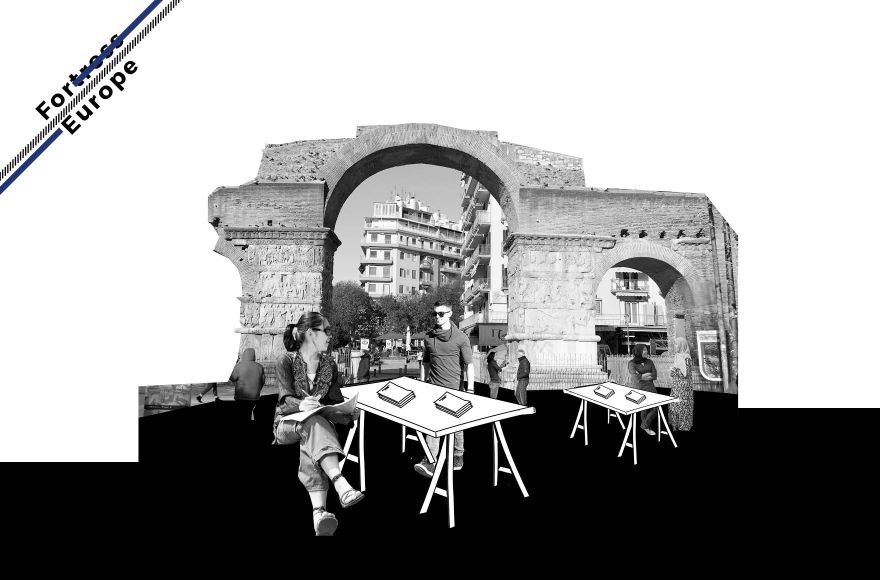September / Oktober 2019
Universität Stuttgart
Rethinking "Fortress Europe"
A strategy for inclusive and cross-border public spaces from Idomeni to Thessaloniki, Greece.

Universität Stuttgart
Master
15.04.2019
SI - Internationaler Städtebau / Prof. Astrid Ley
Städtebau
InDesign, Illustrator, Photoshop, Vectorworks
Idomeni, a little Greek border village became world-wide known in the peak of the ‘refugee crisis’ in Europe in 2015. Thereby Greece has become the transfer country on the journey of refugees to the north and western European countries. In the course of a domino effect of border closures in Europe, the Republic of North Macedonia constructed a border fence along its political borderline with Greece. As a result of that the refugee route through the Balkans got closed and makeshift camps from Idomeni to Thessaloniki appeared. Consequently, this research emerged from the interest on the issue of the fortified barrier along the EU borders. Therefore, this study represents an analysis of the effects of the border fence on the space and communities in Idomeni, Polykastro and Thessaloniki. From the establishment of a vision of inclusive and cross-border public spaces, the project explores the potentials to dissolve the borders. This is achieved by analyzing the sequences and consequenc es of the social and spatial changes since the border closure. A strategic tool kit is formulated as an approach to create these spaces and to include the host and refugee community in planning strategies.
Today the border in the Idomeni region in Greece is still closed, the temporary application became a concrete permanent one and the Fortress Europe has solidified. Many refugees in Greece are still hoping that the border will open again and that they can continue their journeys. The Greek state has faced several challenges from the financial crisis to the debt crisis followed by the refugee crisis that has placed exceptional burdens on the country. The master thesis points out the unjust consequences within the European Union to put all the burdens on Greece as a terminal country and the EU segregationally planning policies for the refugee accommodation in Northern Greece. It urgently demands a more human solution and most notable a European solution.
Given its location and current political attitudes of the European Union, the Idomeni region will likely continue to receive significant numbers of refugees in the upcoming years. Therefore, questions about the best way to receive these arrivals will remain relevant. The significance of inclusive and accessible social spaces and leisure activities, including those in which refugees can develop and share skills, regardless of intention to leave or remain in the city, should also be kept in mind. Current political regulations and urban limitations cannot be changed, but urban processes can influence future political decisions. This project proposes that the change can start in the public spaces. With the production of inclusive and cross-border public spaces by the refugee and host communities from Idomeni to Thessaloniki a sense of shared culture and belonging can be developed. Overcoming the new shifted borders from Idomeni to Thessaloniki can bring us one step closer to the hope of dissolving the fortified borders.